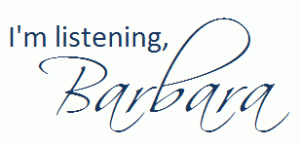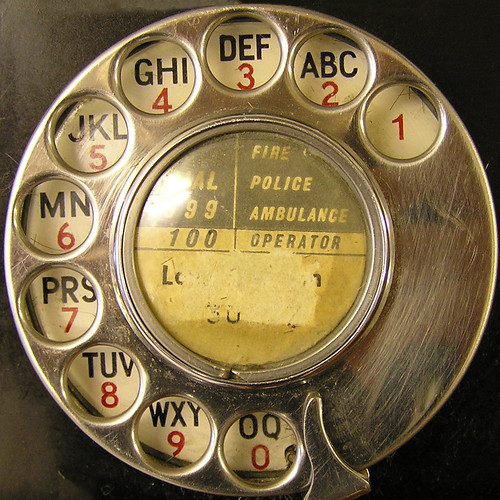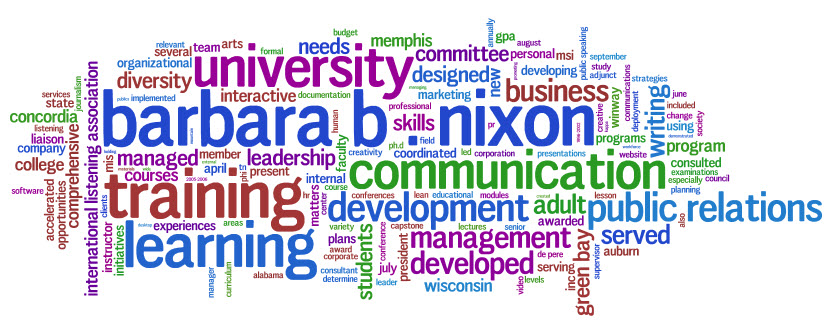 What’s the purpose of a resume? It’s not to get you a job. . . instead, it’s to provide a positive first impression that MAY garner an interview for you. The advice below comes from my years of being a hiring leaders – and listening to many more. If you’re lucky, hiring leaders may scan your resume for up to 15 seconds before they determine if it’s worth pursuing further.
What’s the purpose of a resume? It’s not to get you a job. . . instead, it’s to provide a positive first impression that MAY garner an interview for you. The advice below comes from my years of being a hiring leaders – and listening to many more. If you’re lucky, hiring leaders may scan your resume for up to 15 seconds before they determine if it’s worth pursuing further.
- Tailor your resume to the specific position that you’re applying for. Use the same phrasing in your resume that you’ve found in the employer’s want ad whenever possible.
- If you have less than 10 years of experience, it’s best to stick to the traditional one-page resume. Each additional 10 years may help to “earn” you an additional page. (If you want or need to provide more details, offer the URL of your LinkedIn profile. See my profile.) If you are not yet out of college, it’s presumptuous to think you need more than a one-page resume.
- If your blog has content that may be of interest to your potential employer, include its URL on your resume.
- Pepper your resume with terms that are relevant to the career field and industry in which you desire employment. Phrase your work experience in terms that are relevant to your career goal.
- Use reverse chronological order (most recent first) when listing your experience and education.
- If you are still in college, it’s okay to leave your high school on your resume if you have available space for it, especially if you did something noteworthy during your high school years. After you graduate from college, leave high school off your resume.
- Always start every bullet point in your experience section with an action verb. Use past tense for previous jobs and present tense for current jobs. Never start a bullet point with “responsible for” or “duties included.”
- If you have little paid work experience, provide details on projects done in classes to show that you are prepared to enter the working world.
- Volunteer experience counts too! Don’t forget to include service projects you’ve been involved with.
- Explain acronyms and cryptic group names on resumes. A potential employer will not automatically know that SOCS stands for Society of Communication Scholars, ILA stands for International Listening Association, or that PRestige is a public relations firm made up of college students.
- Many employers assume that if an organization’s name includes greek letters, it’s a social fraternity or sorority. If you belong to something Phi Kappa Phi, indicate that this is an honor society.
- What to do about that GPA? If it’s above 3.0 (on a 4-point scale), you may want to include it. If it starts with a 2 or lower, definitely leave it off. Or, you can include your GPA just in your major if you’d like, for example “3.4 GPA in Major.”
- Before you graduate, you can still include your anticipated degree on your resume. For example, “Bachelor of Science in Public Relations expected in May 2010.”
- Use the same header for your resume, cover letter and reference page. Everything should coordinate.
- To make it look more professional, use your computer, not a pen, to address the envelope.
- Check postage prices before mailing your resume. You don’t want it to arrive postage-due.
- In your cover letter, watch for overuse of the words “I” and “my.” Instead, be company-focused.
- Remember to sign your cover letter.
- Never in a million years should you start a cover letter with “To whom it may concern.” Use the name, or at least the title, of the hiring manager instead.
- For your reference page, include complete contact information for each reference. Include name, title, company, mailing address, e-mail address and phone number.
For entry-level public relations positions, Jennifer Abshire of Abshire Public Relations & Marketing offers these additional suggestions:
- Leave the objective off, or customize it for the specific position you’re applying for. Don’t use a generic one that you found on a template somewhere.
- Include all your work experience, even if it seems not directly related to the position. (The worst that will happen is that it will show that you are a hard worker.) Abshire holds in high regard people who are well rounded and street smart, rather than with a high GPA and no work experience or community involvement.
- Send a few samples of your writing or design work along with your resume.
- If sending your resume (and samples) electronically, make one PDF file that has all the information in it, rather than sending multiple attachments. (For an inexpensive and easy-to-use program for creating PDFs, try CutePDF.)
After you’ve created your resume, have several people proofread it for you. Set it aside for a while. Then measure your resume up against this Resume Checklist.
Updated from my original Resumes That Resonate: Tips for Entry-Level Positions.
 It’s now the start of fall, even though it doesn’t really feel like it here in the Savannah area, and many college seniors’ minds are turning to “how will I get a job when I graduate.” Over the last year or so, I’ve written several blog posts on the job search. Here are a few that might be helpful. especially for public relations majors:
It’s now the start of fall, even though it doesn’t really feel like it here in the Savannah area, and many college seniors’ minds are turning to “how will I get a job when I graduate.” Over the last year or so, I’ve written several blog posts on the job search. Here are a few that might be helpful. especially for public relations majors:





